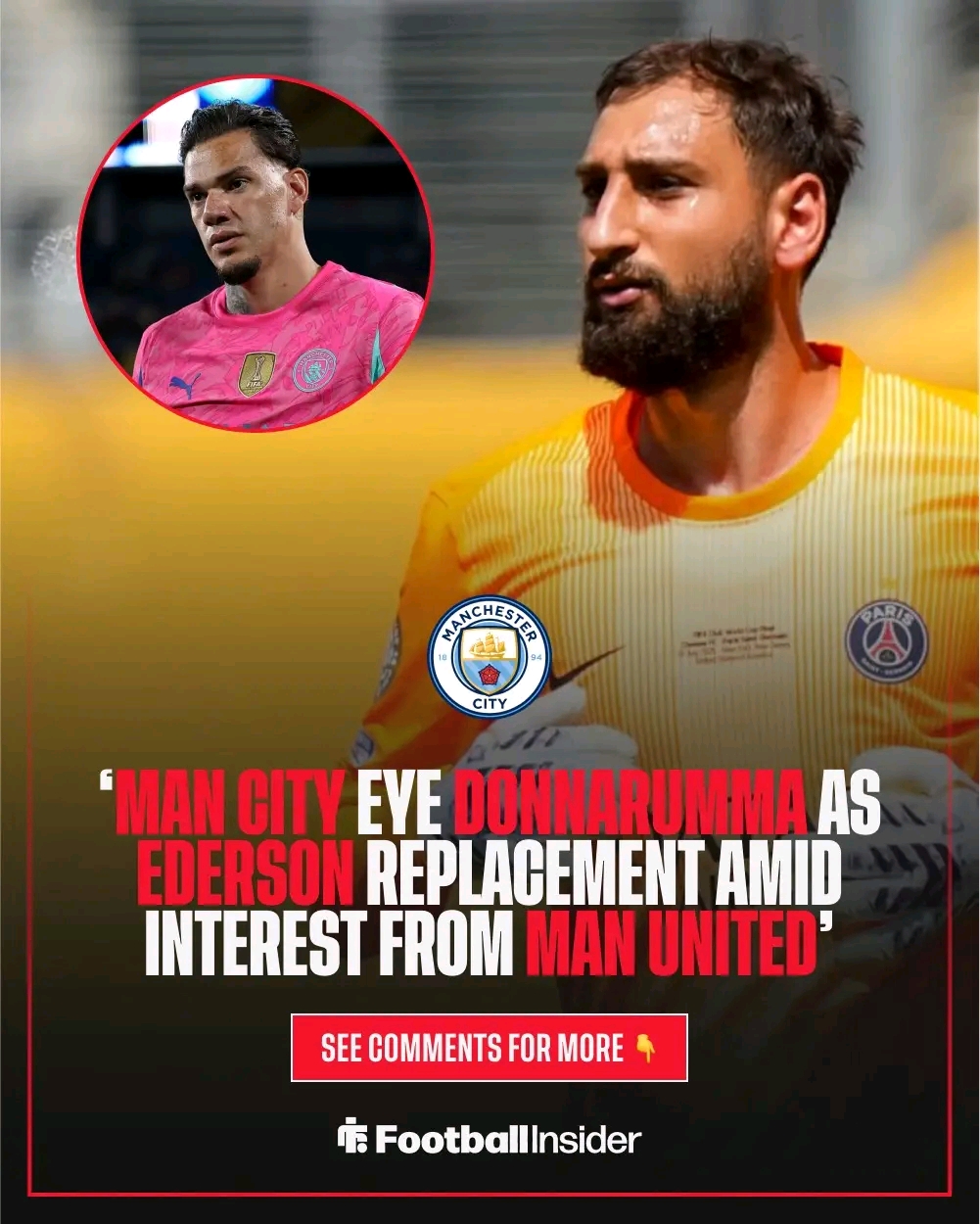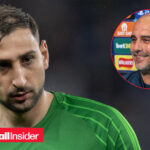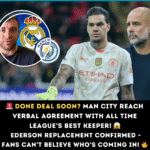Manchester City Eye Donnarumma as Ederson Replacement Amid Multi-Club Interest

The goalkeeper position has become one of the most strategically complex positions in modern football, where technical ability with the ball at feet has become equally as important as traditional shot-stopping prowess. This evolution has created fascinating dynamics in the transfer market, particularly when established clubs seek to upgrade their goalkeeping departments. The current situation involving Gianluigi Donnarumma, Ederson, and the interest from both Manchester City and Manchester United perfectly encapsulates these modern complexities and strategic considerations.
Manchester City’s approach to goalkeeping under Pep Guardiola has been revolutionary in many respects, fundamentally changing how the football world perceives the role of a modern goalkeeper. When Guardiola arrived at the Etihad Stadium, he inherited Joe Hart, a traditional English goalkeeper with exceptional shot-stopping abilities but limited distribution skills. The swift departure of Hart in favor of Claudio Bravo sent shockwaves through English football and established a clear precedent for Guardiola’s expectations.
The Brazilian Ederson, who arrived from Benfica in 2017, represented the perfect embodiment of Guardiola’s goalkeeping philosophy. His ability to launch accurate long passes, participate in build-up play, and effectively operate as an eleventh outfield player revolutionized City’s tactical approach. Ederson’s distribution statistics consistently rank among the best in world football, with his passing accuracy often exceeding that of many outfield players.
However, the 31-year-old’s recent performances have raised questions about his long-term future at the Etihad. Despite providing four assists last season, which demonstrates his continued importance to City’s attacking play, concerns have emerged regarding his injury track record and occasional high-profile errors. These factors have created an opening for potential change, despite Ederson’s overall contribution to the club’s success.
The goalkeeper’s near-move to Saudi Arabia last season highlighted his own willingness to consider alternatives, while interest from Turkish giants Galatasaray this summer suggests that multiple parties are open to a potential departure. This confluence of factors has prompted City’s hierarchy to evaluate their options in the goalkeeping market, leading to speculation about potential replacements.
Manchester City’s response to losing their Premier League crown has been characteristically aggressive and comprehensive. The club’s transfer strategy has reflected a determination to reclaim their position at the summit of English football while addressing perceived weaknesses that contributed to their title loss. This approach has seen significant investment across multiple positions and age groups.
The January transfer window saw City make several strategic additions, demonstrating their willingness to act decisively when opportunities arise. This proactive approach continued into the summer, with the acquisitions of Rayan Cherki, Rayan Ait-Nouri, Tijjani Reijnders, Sverre Nypan, and Marcus Bettinelli representing a blend of immediate impact and long-term potential.
Rayan Cherki’s arrival from Lyon added creative flair and technical ability to City’s attacking options. The French midfielder’s versatility and youth profile align perfectly with Guardiola’s preference for tactically intelligent players who can operate in multiple positions. His addition suggests that City are planning for both immediate success and long-term sustainability.
The signing of Rayan Ait-Nouri from Wolverhampton Wanderers addressed a specific tactical need for pace and attacking threat from the left-back position. The Algerian international’s Premier League experience and attacking instincts make him an ideal fit for Guardiola’s system, where full-backs are expected to contribute significantly to the team’s offensive play.
Tijjani Reijnders’ move from AC Milan represents perhaps the most significant tactical addition to City’s midfield. The Dutch international’s technical ability, tactical intelligence, and versatility provide Guardiola with additional options in a crucial area of the pitch. His experience in Serie A and the Champions League adds valuable depth to City’s squad for their multi-competition campaigns.
The acquisition of young Norwegian talent Sverre Nypan demonstrates City’s continued commitment to identifying and developing the next generation of football stars. The 18-year-old’s potential and the club’s track record with young players suggest this could prove to be a shrewd long-term investment.
Marcus Bettinelli’s arrival provides experienced cover in the goalkeeping department, though his signing may also hint at potential changes in the number one position. The former England international’s Premier League experience and reliable performances make him a solid backup option regardless of who occupies the starting position.
Gianluigi Donnarumma’s career has been marked by early success, high-profile moves, and consistent performance at the highest level of football. His journey from AC Milan’s youth academy to becoming one of Europe’s most recognizable goalkeepers illustrates both his exceptional talent and the complexities of modern football economics.
The Italian international’s emergence at AC Milan was meteoric, with his imposing physical presence and shot-stopping ability quickly establishing him as one of Serie A’s premier goalkeepers. His performances for both club and country cemented his reputation as a generational talent, leading to widespread interest from Europe’s elite clubs.
His controversial departure from AC Milan to join Paris Saint-Germain on a free transfer in 2021 demonstrated the power dynamics in modern football, where players can leverage contract situations to secure lucrative moves. The transfer also highlighted PSG’s ambitious recruitment strategy and their willingness to invest heavily in securing top-tier talent across all positions.
At PSG, Donnarumma has continued to demonstrate his exceptional shot-stopping abilities while adapting to the tactical demands of French football. His performances in the Champions League have been particularly impressive, showcasing his ability to perform on the biggest stages against the world’s best attackers.
However, his current contract situation at PSG has created uncertainty about his future. With just one year remaining on his deal and the club reportedly unwilling to match his current €10 million annual salary, Donnarumma finds himself at a career crossroads. This situation has attracted interest from multiple top-tier clubs, creating a competitive market for his services.
The financial aspects of Donnarumma’s potential transfer present intriguing considerations for all parties involved. His current salary of €10 million per year places him among the highest-paid goalkeepers in world football, reflecting both his ability and the premium that elite clubs place on the position.
PSG’s reluctance to continue at this salary level suggests a strategic shift in their approach to squad building and wage structure. The club’s desire to retain Donnarumma while reducing his salary creates a delicate negotiation dynamic that could ultimately facilitate his departure if no agreement can be reached.
For potential suitors like Manchester City and Manchester United, Donnarumma’s contract situation presents both opportunities and challenges. The relatively low transfer fee due to his expiring contract makes him an attractive proposition from a pure transfer cost perspective. However, his wage demands could potentially disrupt existing squad hierarchies and create financial implications that extend beyond the immediate signing.
Manchester City’s financial position allows them to compete for players of Donnarumma’s caliber, but their approach to wage structure has generally been strategic rather than excessive. The club’s willingness to pay premium salaries is typically reserved for players who fit perfectly into Guardiola’s tactical system and provide unique value propositions.
Manchester United’s interest adds another dimension to the potential transfer, creating a competitive dynamic that could influence both the transfer fee and personal terms. The club’s need to replace Andre Onana and their financial capabilities make them serious contenders for Donnarumma’s signature
The tactical fit between Donnarumma and Manchester City’s playing style represents the most intriguing aspect of this potential transfer. Guardiola’s demands on his goalkeepers extend far beyond traditional shot-stopping, requiring exceptional distribution skills, tactical intelligence, and the ability to operate effectively in high defensive lines.
Donnarumma’s strengths lie primarily in traditional goalkeeping areas: shot-stopping, commanding his penalty area, and physical presence. His reflexes and ability to make spectacular saves have been consistently demonstrated at the highest levels of football. These attributes would undoubtedly benefit any team and provide City with a reliable last line of defense.
However, questions remain about his distribution and ball-playing abilities, which are crucial elements of Guardiola’s tactical approach. The Spanish manager’s decision to move on from Joe Hart, despite the Englishman’s shot-stopping abilities, was based precisely on these technical requirements. Any potential signing of Donnarumma would need to be evaluated against these same criteria.
The Italian’s experience in different tactical systems could work in his favor, as he has adapted to various approaches throughout his career. His time at PSG has exposed him to different tactical demands, potentially improving his overall game and making him more suitable for Guardiola’s requirements.
City’s coaching staff’s ability to develop players should also be considered in evaluating this potential transfer. The club’s track record of improving players’ technical abilities suggests that any perceived weaknesses in Donnarumma’s distribution could potentially be addressed through focused training and tactical development
Manchester United’s interest in Donnarumma stems from their own goalkeeping complexities and the need to establish long-term stability in the position. Andre Onana’s performances since joining from Inter Milan have been mixed, with moments of brilliance offset by occasional errors that have raised questions about his suitability for the Premier League.
Under Ruben Amorim’s management, United are seeking to establish a clear identity and tactical approach that requires specific attributes from their goalkeeper. The Portuguese manager’s tactical philosophy and his expectations for the goalkeeping position will likely influence United’s decision-making in this area.
Donnarumma’s age profile makes him an attractive long-term option for United, potentially providing stability in the position for the next decade. At 26, he represents the ideal combination of experience and potential longevity, factors that are particularly valuable for a position as crucial as goalkeeper.
The competition between United and City for Donnarumma’s services could escalate the financial aspects of any potential deal while also providing the player with attractive options for his next career move. Both clubs offer different advantages, from tactical approaches to competitive opportunities, creating a complex decision-making process.
Manchester City’s interest in Donnarumma exists within a broader context of available goalkeeping options in the current transfer market. The club has been linked with several other candidates, each presenting different advantages and considerations for their potential signing.
Diogo Costa from Porto represents a younger option with excellent technical abilities and distribution skills that would suit Guardiola’s tactical requirements. The Portuguese international’s performances in the Champions League and for his national team have attracted attention from multiple top-tier clubs, creating competition for his signature.
James Trafford, City’s former academy graduate, presents an intriguing option that would represent both a homecoming and a demonstration of the club’s faith in their youth development system. His performances since leaving City have been impressive, and his familiarity with the club’s tactical approach could facilitate a smoother transition.
The presence of multiple options provides City with negotiating leverage while also ensuring that they are not dependent on any single transfer target. This strategic approach allows the club to pursue their preferred option while maintaining alternatives if negotiations prove unsuccessful.
The potential movement of elite goalkeepers like Donnarumma reflects broader trends in European football, where even traditionally stable positions are subject to increasing transfer activity. The financial dynamics of modern football have created situations where even established players at top clubs can find themselves available for transfer due to contract situations or tactical considerations.
This trend has created opportunities for clubs to upgrade their goalkeeping departments without the traditionally prohibitive transfer fees associated with elite players. However, it has also increased competition for the best available options, potentially driving up personal terms and agent fees even when transfer fees remain reasonable.
The influence of tactical evolution on goalkeeper requirements has also contributed to increased movement in the position. As more managers adopt possession-based approaches that require technical ability from goalkeepers, traditional shot-stoppers may find their options limited while technically gifted keepers become increasingly valuable.
Any decision regarding Donnarumma’s potential signing must be evaluated within the context of long-term strategic planning rather than immediate tactical needs. For Manchester City, the goalkeeper position represents a crucial element of their tactical system, and any change must align with their broader philosophical approach.
The club’s commitment to Guardiola’s tactical philosophy suggests that technical ability with the ball will remain a priority regardless of who occupies the goalkeeping position. This requirement may influence their evaluation of Donnarumma’s suitability and their willingness to invest in his development if perceived weaknesses exist.
Manchester United’s approach will likely be influenced by their desire to establish a new identity under Amorim’s management. The Portuguese coach’s tactical preferences and his vision for the team’s playing style will be crucial factors in determining whether Donnarumma represents the right fit for their long-term plans
The interest in Gianluigi Donnarumma from both Manchester City and Manchester United represents one of the summer’s most intriguing potential transfers, combining tactical considerations, financial dynamics, and strategic planning in a complex equation. The Italian goalkeeper’s situation at PSG has created an opportunity for elite clubs to acquire a proven performer at a reduced transfer fee, though his wage demands and tactical fit remain important considerations.
For Manchester City, the decision will likely hinge on whether Donnarumma’s overall profile aligns with Guardiola’s specific requirements for the position. The manager’s track record suggests that tactical fit will be prioritized over reputation, meaning that Donnarumma’s technical abilities with the ball will be crucial to any potential deal.
Manchester United’s interest adds competitive pressure while also providing Donnarumma with attractive alternatives for his next career move. The club’s need for goalkeeping stability and their financial capabilities make them serious contenders, potentially creating a bidding situation that could benefit the player financially.
The resolution of this situation will provide insights into the current state of the goalkeeper transfer market and the priorities of elite clubs when evaluating players for this crucial position. Whether Donnarumma ultimately moves to Manchester, remains in Paris, or explores other options, his situation illustrates the complex dynamics that now characterize even traditionally stable positions in modern football.
The broader implications extend beyond the immediate transfer, potentially influencing how other clubs approach their own goalkeeping situations and the value placed on different attributes in the position. As tactical evolution continues to reshape football, the goalkeeper position will likely remain subject to increased scrutiny and potential change at even the highest levels of the game.















